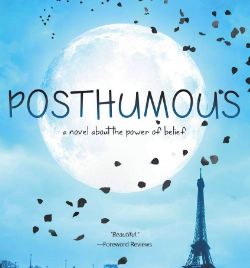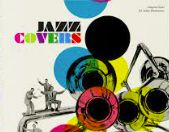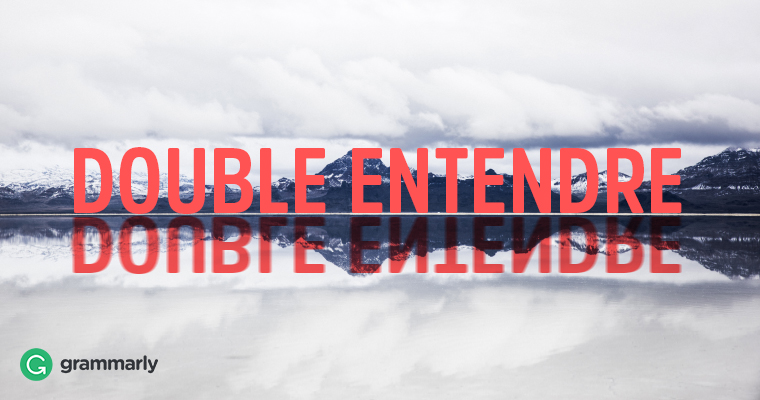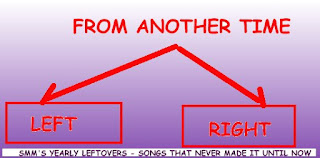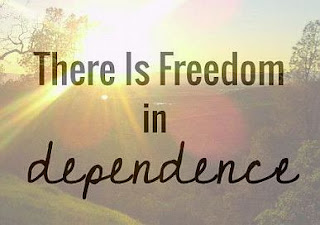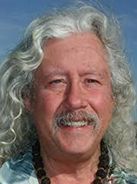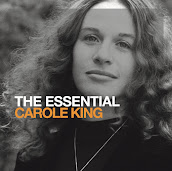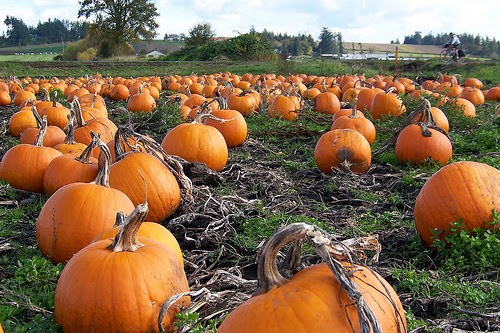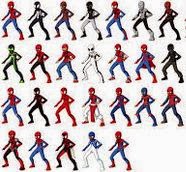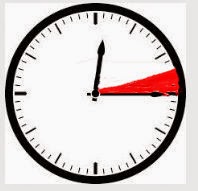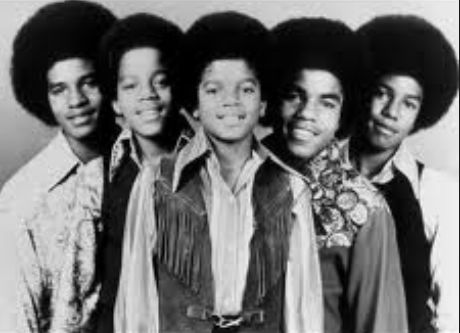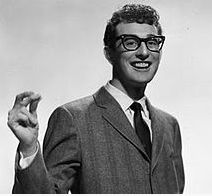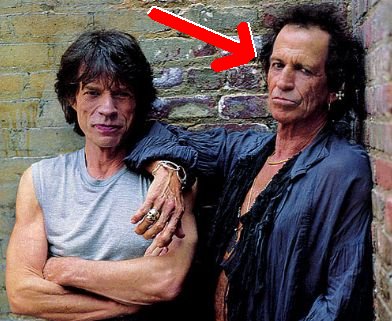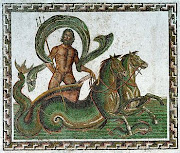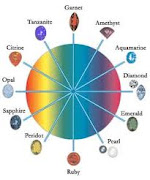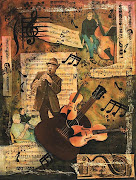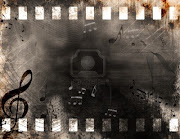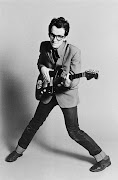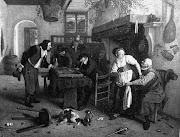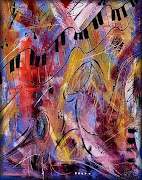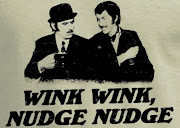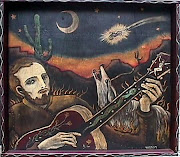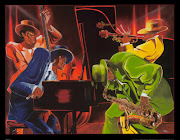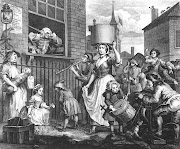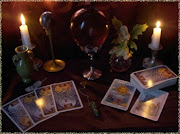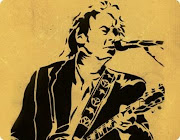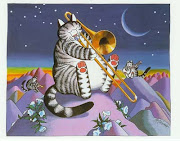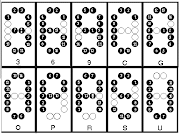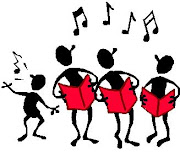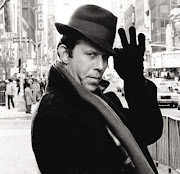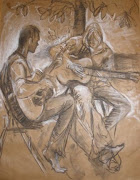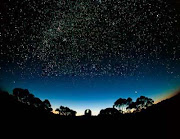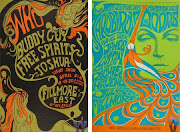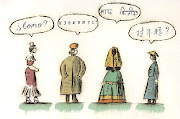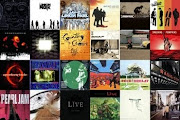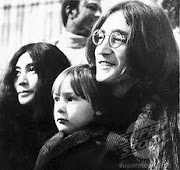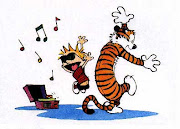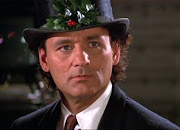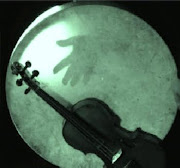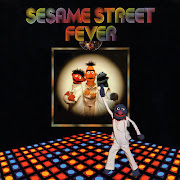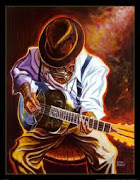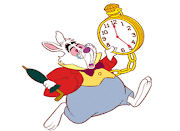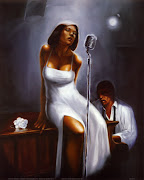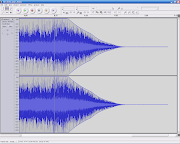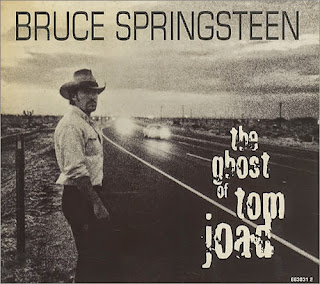Buy the album, and read the lyrics
Immigration, the immigrant...
The name itself conjures up more songs than would fit into one post. The Irish know a little something about setting the immigrant’s tale to song. So do Latino artists, and songs of their particular tale of coming North for a new life are more poignant now than ever before, in light of the recent national argument we’ve been having over the immigration “problem”. Songs that preserve a part of history or illuminate our current times are always poignant, always interesting and our musical heritage is nothing but the voice of many, telling our varied story, and there is amazing forensic, perhaps, anthropological joy that comes from tracing our history through the way it was put to music, before it became history and was simply one’s story.
Music that teaches is nothing new and seems to serve a purpose beyond being simply a song. This can be found in any of the thousands of recordings of Alan Lomax, in churches and pubs, on street corners and cotton fields, prison yards and juke joints.
Musical heritage tells a story of living America, not just the history that creates the story in the text books, but the place we are from and the fabric our story is woven from. I think a particularly amazing journey to take through song is that of those who left their own homes to make America their new home.
I suppose in my immediate purview, the Irish emigration sagas that have been set to song resonate most soundly. But, I admit, that’s a matter of taste more than a good representation of all the ethnic and cultural voices that are out there to listen to.
The Pogues' Thousands are Sailing,
the traditional “Spancil Hill” , and
The Shores Of Amerikay--or any other tune you’ve pretended to sing along to while downing pints in an “Irish” bar, all come to mind as great examples of capturing the experience of leaving home.
These songs also contribute to the proud tradition of America being a place founded on all of us having come from another part of the world and relying on the promise of a better life.
We could argue all day over the nature of immigration, the shallow truth of the American dream, the silly idealism of believing in the mythical “all are created equal and the huddled masses” bit, and the legality of Obama’s Immigration legislation, but the fact remains: our country was founded on certain principles and coming here to be better than what you were where you came from is part of our cultural DNA. Which is most disturbing when you try to reconcile our mythos with the current reality of the ‘send ‘em home’ attitude so many have adopted in light of the influx of illegals from our southern neighbors.
As Americans, we’re all immigrants, at one time or another, and the mark of the years passing and the new generations you belong to won’t change that.
So, politics aside, musically, we are ripe with the immigrant experience as the wellspring of song.
Artists that are perhaps more familiar to the listener, like Bruce Springsteen, have used this reality and the changing face of immigration in America to great effect. Springsteen, like any good storyteller, work best in the format when the take on the role of first person narrator, relaying experience, often poetically, always with a sharp, stark realism. Springsteen’s Devils and Dust, to some degree, deals with this, but his 1995 masterpiece
The Ghost of Tom Joad, is in total a reflection on the status of immigration, seen through the lives of characters stuck in the limbo of the South-West border, and is a dark look at the immigrant’s experience. It is a strange, per-sage look at our modern times, where the desperation of the have-nots clashes with everyone else’s and the prize is waiting on the proverbial other side, always just out of reach, across a river, under a fence, in the life that will come next…
Considering the title and the track from which it takes it name, Springsteen masterfully draws connections, both literal and metaphorical, to Steinbeck’s
The Grapes of Wrath, the cinematic survey of the great depression and the plight of the reverse-immigrant, in this case, the Americans forced from their homes by economic hardship and the harrowing specter of starvation in the Dust Bowl. The Joads are from Oklahoma, and serve as the blueprint of all the American families seeking a stable home in their own land, but find themselves beaten, chased and dogged by prejudice and lack of understanding by their own people, sad immigrants in their own land.
The imagery of the album evokes the photography of Dorthea Lang, and the sharp, detailed precision of Steinbeck’s prose, while also resembling the news being broadcast from Texas, Arizona, California, USA. Springsteen takes the well-known history and places it in the new American, with darker skin tones and trying to get in a find a new home while leaving the old one behind. Aside from their origins, both the immigrant from the Great Depression America, and the new, more politically troubling one, essentially come from the same story. And this album is populated by two distinct groups: Americans adrift in the own home, looking to metaphorically immigrate to someplace better, and the traditional immigrant, seeking to cross the border and start a new life. When you look at the two archetypes, side by side, you see how similar they are. The Joad family are hounded, beaten, defeated in The Grapes of Wrath—and the characters that populate
The Ghost of Tom Joad fare no better in their immigration to a new place.
The Ghost of Tom Joad is a musical journey through the New West, and the many hues and origins of its characters, and the most powerful songs on the album concern stories of the those who are trying to make it, but can’t, simply because they are the new immigrants, having left behind Mexico for a better life in a harsh, unforgiving place.
Sinaloa Cowboys, Balboa Park, and
Across the Border tell varying stories of illegals, and the sparse imagery of desperation—both to make it across and to survive once they’ve arrived—is vivid and real.
Springsteen’s mostly acoustic arrangements draw sharp lines and easily read contrasts, like a photographic album. Other songs on the album, such as
Galveston Bay, deal with legal immigration, though the former South Vietnamese soldier, who fought along side the Americans in the war, finds himself no more welcome than his Latino counterparts.
The other songs on
The Ghost of Tom Joad deal with immigration in their own way, telling the story of being an outsider.
Straight Time, The Line, Dry Lightning, and The New Timer are all heavy with the weight of personal history, of living outside of the confines of society and walking the edge of whatever it is we most define a ‘normal’ life as.

The album is rife with the imagery of dreaming, and of leaving behind the darkness and achieving the light. The desperate speaker of
Straight Time finds himself trapped in his own life, and there are no borders to cross to find a better life, save for the ones in his dreams:
“Come home in the evening, can't get the smell from my hands
Lay my head down on the pillow
And, go driftin' off into foreign lands”
These songs deal with that traditional Springsteen character he’s made such brilliant use of throughout his career—ultra-realistic and living on the fringes of society. The album is full of desperate souls who speak of finding happiness for so many reasons, all different, yet all with the same goal of getting to a place “…Where pain and memory/ Pain and memory have been stilled / There across the border…”
Springsteen’s characters tell tales of life on the edge, one step ahead of disaster, those that taste the bitter salt of disappointment, disenfranchisement, of having never been close enough, smart enough, gutsy enough, to grab hold of the American dream. From the border patrol officer who falls in love with a girl he busts for crossing the border in
The Line, to the drifter dreaming angrily of all he’s lost in
The New Timer, the cast of characters on
The Ghost Or Tom Joad are all immigrants of a sort, searching, pining, or just plain lost.
Lots of people like to say that Springsteen is great because he understands us, knows us, is one of us—but when I go see him live, very few are the people in the audience who resemble one of Springsteen’s struggling, angry every men. Springsteen’s genius, rather, lies in showing us what we could be, what we are afraid of being. His work has always been anchored by an unflinching sense of reality and of the stark closeness to truth, yet is buoyed by a sense of triumph and happiness and overcoming. Music itself is catharsis, which is why Springsteen channels almost a religious power in taking one from the depths of despair to the very height of jubilation—he can take a terrible story and through the power of song, somehow show that there is light on the other side.
This is a promise he makes good on in song after song, sometimes, subtly, sometimes to triumphal, ecstatic arena-sized paroxysms of guitars and drums…Don’t believe me? I dare you not to convert to Church of Bruce after experiencing
“Light Of Day”.
If there’s ever an argument for his Sainthood, this is it…
Live in Berlin, from the Ghost of Tom Joad solo acoustic tour





































